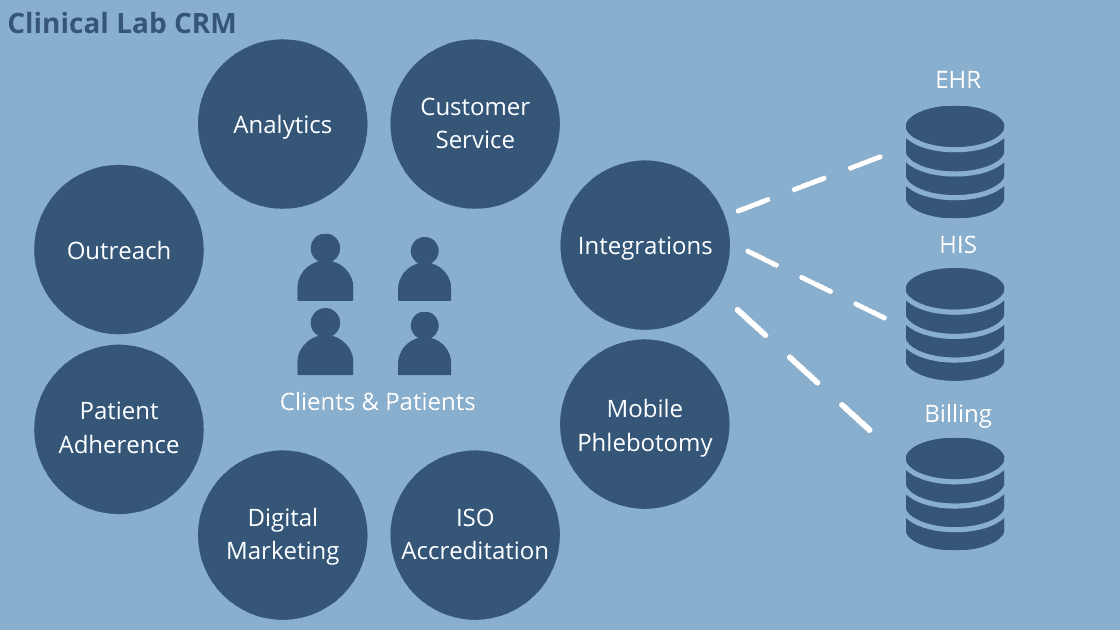
As we’ve seen in many enterprises, clinical laboratories tend to have patient information siloed in different areas across the operation.
Disparate repositories of information result in operational inefficiencies. These repositories also prevent a lab from being as proactive as it could be with regard to client communications.
To solve these operational issues and improve provider and patient experiences, clinical labs have increasingly adopted Salesforce. Here is why:
1. More Effective Outreach
At many clinical labs, patient and client data are siloed across multiple systems, including:
- EHR
- HIS
- Billing
- Email Marketing
- LIS
- Spreadsheets
A CRM system needs to be tailorable to the specific needs of clinical laboratories. With a rich toolset, Salesforce is regularly adapted to the complexities of specific healthcare environments, including labs.
FHIR standards have made it easier than ever before to feed clinical data into Salesforce. This standard is important for reducing the number of data silos because it can be used in so many ways.
With data consolidation and visibility, what was reactive client management can become proactive client engagement.
2. Enhanced Digital Marketing
Any outreach effort is incomplete without a contemporary digital marketing component.
Salesforce offers a richer client experience/marketing automation platform than what is available from other email marketing vendors.
The old way outbound digital marketing was done was to blast the same message to all providers. When Salesforce and its marketing automation offering, Pardot, are combined, it’s easier than ever before to segment a single marketing database into multiple, targeted lists.
Why? Because marketing automation has access to multiple external criteria that can be used for segmenting clients and prospective clients.
One example is online behavior. The things that a provider expresses an interest in, as indicated by their email clicks and website page visits, is information that can be incorporated into their marketing profile.
Data elements added to a physician’s contact in Salesforce can also become a part of their marketing profile. Due to this, members of different lists can receive emails and other communication that’s most relevant to them. The higher the degree of relevance in digital communications, the more attention a lab will get from outbound communications.
3. Support for Mobile Phlebotomy

Salesforce makes it easy to extend database and workflow functionality to mobile devices in the field.
This extension means that phlebotomists can update centralized patient records during visits to nursing homes and rehab centers—even patients’ homes.
In addition, geographic validation ensures that mobile phlebotomists follow their prescribed schedule of visits.
4. More Responsive Customer Service
CRM is a commonly adopted platform for providing customer service to clients and patients. You can find that functionality in Salesforce Service Cloud.
Contact centers can benefit from the integration of Salesforce with their existing call center communication software, e.g., Amazon Connect.
5. Real-Time Analytics
When data from different silos (clinical, business, billing, testing) are consolidated into Salesforce, built-in reporting and dashboard functionality can provide a more complete picture of clients.
Since Salesforce can centralize information from different internal sources, it can enable broad analytical views.

6. ISO Accreditation
How can a CRM system like Salesforce help a lab achieve ISO accreditation? (ARUP Laboratories in Salt Lake City used it in part to facilitate its ISO 15189 accreditation!)
Salesforce is a multi-user, customizable database and workflow solution. It can be configured to support the formalization and standardization of processes with workflows and data validation rules, ensuring that users enter the right information at the right time.
With proper configuration, Salesforce also allows labs to develop a systematic approach to management. A lab can continually improve its processes while maintaining a client focus, and the same processes can be followed in the same way every time.
7. Greater Patient Adherence to Lab Requests
Salesforce could be part of a solution to what is a common problem for labs—lost revenue from non-adherence to lab requests.
Often, when a physician requests a test, the patient may choose not to show up at the lab. The fact that the patient never had that test done often does not become known to the physician who requested it until the patient’s next office visit.
Salesforce can fix this issue by housing data both from a patient’s office visit (a test was requested on a certain date) and from the lab (the test results were sent to the provider on a certain date). Exception reporting and automated alerts from Salesforce could notify the physician and patient that the test has not occurred within an expected timeframe.
Conclusion
Salesforce is a CRM platform that can streamline lab operations to result in more proactive engagement with clients, improve patient health, and enhance lab revenue. Drop us a line to find out how.
J2 Interactive is an award-winning software development and IT consulting firm that specializes in customized solutions for healthcare organizations.
If you would like to discuss how Salesforce can create operational efficiencies and increase your clinical lab’s revenue, please get in touch with us.



